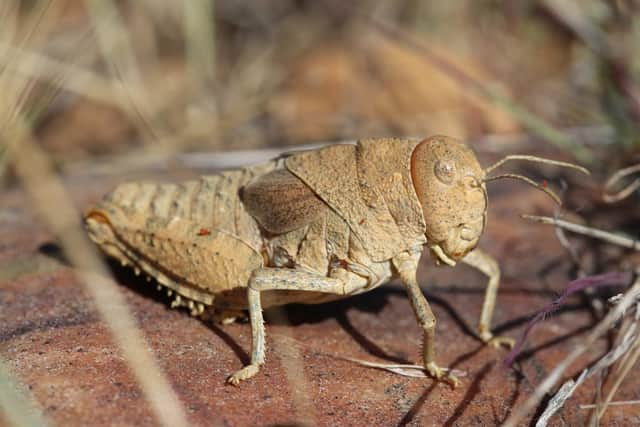How to help stop insectageddon
Other measures include growing native plants, building bug hotels and making sure not to release alien plants and animals that could harm local species.
The advice comes from a team of international researchers investigating dramatic declines in insects worldwide.
Advertisement
Hide AdAdvertisement
Hide AdBugs, bees and butterflies are a key part of life on earth, performing crucial natural services such as pollination of many plants - including key food crops.


But populations of many species across the globe have been suffering major declines, with a number already wiped out and fears raised that the planet could be facing “insectageddon”.
A number of factors have been blamed for the trend, including the expansion and intensification of modern farming practices, pollution and the effects of climate change.
Now 30 researchers from the UK and overseas have drawn up a nine-point plan of actions ordinary people can take to help make their environment more bug-friendly
University of Huddersfield lecturer Dr Matt Hill, a specialist in aquatic ecosystems, was part of the team.
He warned that insects such as beetles, dragonflies and mayflies as well as creatures such as snails are in long-term decline in the UK and across the world, which could have a major impact on the environment.
He highlighted the important functions insects have in the ecosystem that cannot be replicated by technology or any other innovation.
For example, many human food crops depend on pollination to survive, while decomposition of dead bugs contributes to nutrient cycling.
Advertisement
Hide AdAdvertisement
Hide AdHe said: “They provide food for other animals and they can also have a significant role in the functioning of freshwater ecosystems, forming a critical component in the diversity of life.”
Dr Hill worked with scientists in countries including Germany, Columbia, Finland and South Africa, pooling their research and collaborating on two new articles.
Scientists' warning to humanity on insect extinction and Solutions for humanity on how to conserve insects have been published in the journal Biological Conservation.
A message from the Editor:
Thank you for reading this story on our website. While I have your attention, I also have an important request to make of you.
With the coronavirus lockdown having a major impact on many of our advertisers - and consequently the revenue we receive - we are more reliant than ever on you taking out a digital subscription.
Subscribe to scotsman.com and enjoy unlimited access to Scottish news and information online and on our app. With a digital subscription, you can read more than 5 articles, see fewer ads, enjoy faster load times, and get access to exclusive newsletters and content. Visit https://www.scotsman.com/subscriptions now to sign up.
Our journalism costs money and we rely on advertising, print and digital revenues to help to support them. By supporting us, we are able to support you in providing trusted, fact-checked content for this website.
Comments
Want to join the conversation? Please or to comment on this article.